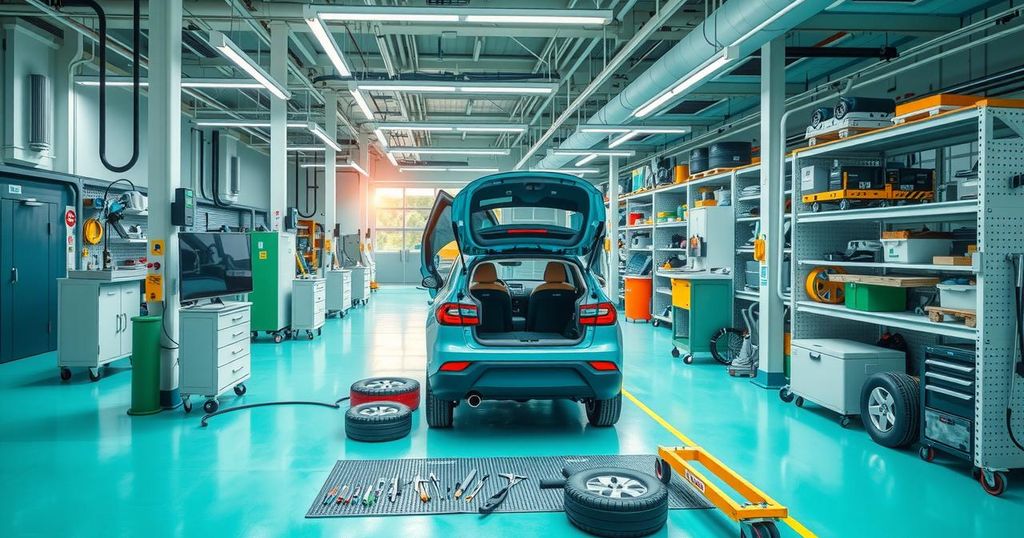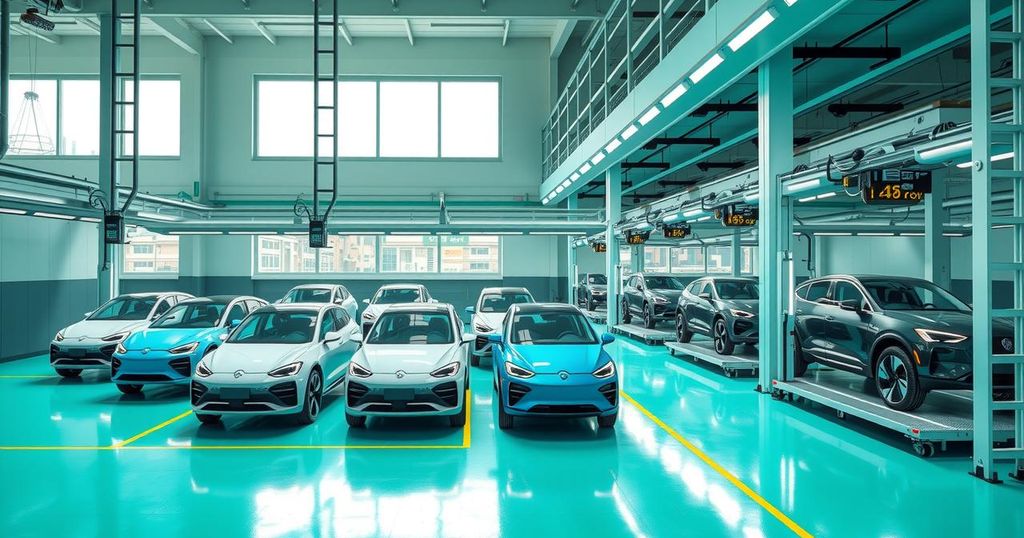BYD Starts Production in Brazilian Plant, Unveiling New Electric Vehicles
- BYD has initiated production at its Camaçari plant in Brazil, its first outside China.
- Three models, including the Dolphin Mini (Seagull), will be assembled at this new facility.
- The Camaçari plant is situated in a former Ford factory, which BYD acquired for R$300 million.
- BYD is investing R$5.5 billion in Brazil and has already allocated R$1.4 billion.
- The plant is expected to create 10,000 new jobs, with 3,000 additional positions announced.
- The facility operates as an SKD plant, utilizing parts shipped from China for final assembly in Brazil.
- Tariff increases for EV imports in Brazil and ongoing negotiations pose challenges for BYD’s strategies.
BYD launches first EV factory in Brazil as production begins
BYD has officially started production at its newest plant in Camaçari, Brazil, marking a significant leap for the company as this facility is its first electric vehicle (EV) production site located outside of China. The initial line-up at the plant includes three key models: the BYD Dolphin Mini, which is referred to as the Seagull in China, along with the Song Pro and the King, also known as the BYD Qin Plus DM-i. This transition into Brazilian production is anticipated to bolster BYD’s global footprint and meet growing EV demands in the South American market.
Investment and job creation highlighted by BYD’s efforts
The Camaçari plant is a former Ford facility that BYD acquired for R$300 million (about $55 million USD) back in March 2024. This new SKD plant comes equipped with 26 warehouses and a test track, boasting an impressive annual capacity of 150,000 vehicles. The company has earmarked a total investment of R$5.5 billion (around $1 billion USD) for this venture, of which R$1.4 billion has been injected so far. Additionally, the establishment of this production facility is set to create around 10,000 jobs, with 3,000 new openings announced during the recent media event, solidifying BYD’s commitment to local employment opportunities.
Challenges with import tariffs and local partnerships
In order to streamline the manufacturing process, BYD’s facility in Camaçari operates on an SKD basis. This entails partially disassembling vehicles at their origin in China, sending the main components, such as the body, motor, and battery, to Brazil for assembly. BYD is also focused on fostering local collaboration, having already partnered with Continental to produce tires locally. However, the launch coincided with Brazil’s hike in import tariffs, increasing duties on electric vehicles from 18% to 25% and on plug-in hybrids from 20% to 28%. This has implications for BYD as they are advocating for a reduction in tariffs on SKD semi-dismantled vehicles to 10%, yet government response is still pending, complicating their strategy.
In summary, BYD’s launch of its first international electric vehicle production plant in Brazil marks a significant moment for the company. With plans for substantial investment and local job creation, the manufacturing strategy faces hurdles such as increased tariffs on imports, but the company remains optimistic about moving forward. Their commitment to local partnerships, such as with Continental, will support their operational efforts, while they navigate the ongoing challenges presented by Brazilian regulations and scrutiny.




Post Comment